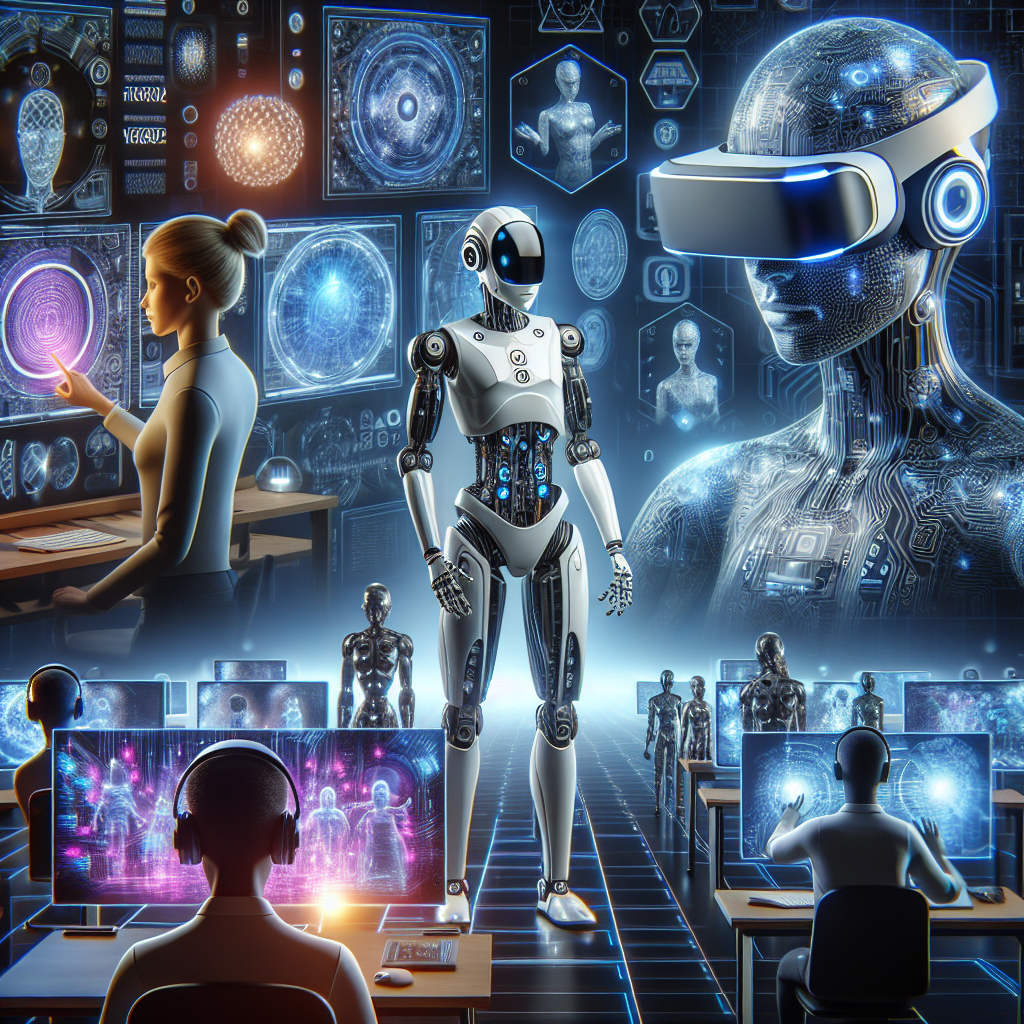Artificial Intelligence (AI) and Virtual Reality (VR) are two rapidly evolving technologies that are changing the way we interact with the world around us. When these two technologies are combined, they have the potential to revolutionize how we experience virtual environments. AI platforms in VR can enhance the user experience, improve immersion, and create more realistic and personalized experiences.
AI platforms in VR can take many forms, from chatbots that provide information and guidance to virtual assistants that help users navigate virtual worlds. These platforms can also analyze user behavior and preferences to personalize the VR experience, making it more engaging and enjoyable.
One of the key benefits of AI platforms in VR is their ability to enhance immersion. By using AI algorithms to analyze user behavior and preferences, virtual environments can be tailored to the individual user, creating a more personalized experience. This can help users feel more connected to the virtual world and increase their sense of presence.
AI platforms in VR can also improve the overall user experience by providing real-time feedback and assistance. For example, virtual assistants can help users navigate complex virtual environments, provide information about objects and locations, and offer suggestions for activities or interactions. This can make the VR experience more intuitive and enjoyable for users, especially those who are new to VR or may have difficulty navigating virtual worlds.
Another potential application of AI platforms in VR is in creating more realistic and dynamic virtual worlds. AI algorithms can be used to generate realistic behaviors for virtual characters, simulate realistic physics and interactions, and create dynamic and responsive environments. This can make virtual worlds feel more lifelike and immersive, enhancing the overall VR experience.
AI platforms in VR also have the potential to revolutionize how we interact with virtual environments. By using natural language processing and machine learning algorithms, AI platforms can understand and respond to user input in a more intuitive and natural way. This can make interactions in VR more seamless and immersive, creating a more engaging and interactive experience for users.
In addition to enhancing the user experience, AI platforms in VR can also provide valuable insights and analytics for developers and content creators. By analyzing user behavior and preferences, AI platforms can help developers understand how users interact with virtual environments, what they enjoy, and what they find challenging. This information can be used to improve the design of virtual worlds, create more engaging content, and tailor experiences to the preferences of individual users.
Overall, the potential of AI platforms in VR is vast and exciting. By combining the power of AI with the immersive capabilities of VR, developers and content creators can create more engaging, personalized, and realistic virtual experiences for users.
FAQs:
Q: How do AI platforms enhance the user experience in VR?
A: AI platforms in VR can enhance the user experience by providing personalized and immersive virtual environments, real-time feedback and assistance, and more realistic and dynamic virtual worlds.
Q: What are some potential applications of AI platforms in VR?
A: Some potential applications of AI platforms in VR include enhancing immersion, improving user experience, creating more realistic and dynamic virtual worlds, and revolutionizing how we interact with virtual environments.
Q: How can AI platforms in VR benefit developers and content creators?
A: AI platforms in VR can provide valuable insights and analytics for developers and content creators, helping them understand user behavior and preferences, improve the design of virtual worlds, create more engaging content, and tailor experiences to the preferences of individual users.

